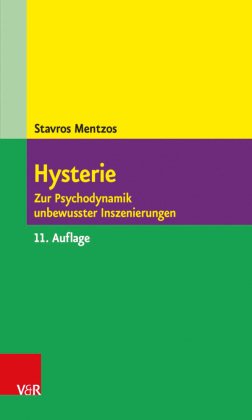Hysterie - Zur Psychodynamik unbewusster Inszenierungen
| Verlag | Vandenhoeck & Ruprecht |
| Auflage | 2015 |
| Seiten | 192 |
| Format | 12,3 x 20,5 x 1,4 cm |
| Gewicht | 235 g |
| ISBN-10 | 3525461992 |
| ISBN-13 | 9783525461990 |
| Bestell-Nr | 52546199A |
Das klassisch gewordene Grundlagenwerk berücksichtigt neuste mediale und gesellschaftliche Entwicklungen wie die frenetische Begeisterung Jugendlicher für »Tokio Hotel« oder das wachsende Phänomen Sensationslust.
Das klassisch gewordene Grundlagenwerk, nun ergänzt um ein Kapitel zum Hysteriebegriff im 21. Jahrhundert.
In der Umgangssprache wird das Wort »hysterisch« abwertend für alles Unechte, Theatralische, haltlos Übertriebene benutzt. Die Psychiatrie und die Psychologie belegten mit dem Terminus Hysterie eine Fülle von körperlichen und seelischen Symptomen und Störungen, die erst durch die Psychoanalyse Sigmund Freuds eine einheitliche Bedeutung und Erklärung erhielten.Zwar sind die damals beschriebenen klassischen hysterischen Krankheitsbilder im Lauf des 20. Jahrhunderts immer seltener geworden; die Auffassung des Hysterischen als Reaktion auf eine längst überwundene repressive Sexualmoral ließ das Freud'sche Konzept als obsolet erscheinen.Stavros Mentzos weist jedoch mit zahlreichen eindrucksvollen Beispielen nach, dass der hysterische Modus der Konfliktverarbeitung mittels unbewusster Inszenierungen relevant bleibt - nicht nur zum Verständnis psychopathologischer und psychosomatischer Dynamik, sondern überhaupt menschlichen Verhaltens und Interagierens.
This now classical fundamental work has been expanded by a chapter on the notion of hysteria in the 21st century.
This classical fundamental work reflects the newest developments in the media and society, such as the frenetic excitement among adolescents in the presence of the group "Tokio Hotel" or the growing phenomenon of sensation mongering."Hysterical" is now used colloquially to mean fake, theatrical, histrionic, exaggerated. In psychiatry and psychology, on the other hand, the term was long connected with a number of physical and mental symptoms and disorders that arose in the 19th and declined in the 20th century. Freud's definition of hysteria is now considered obsolete. Stavros Mentzos provides a number of impressive examples of how the modus of hysteria remains relevant today through the exhibition of unconscious acting-out. This helps us to understand not only psychopathological and psychosomatic dynamics, but human behaviour and interaction in general.

